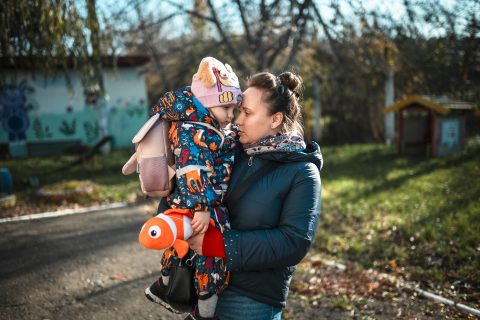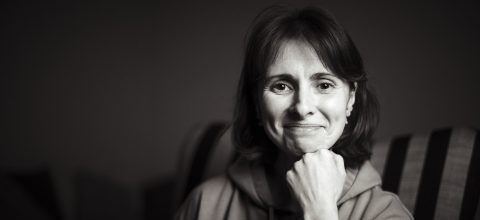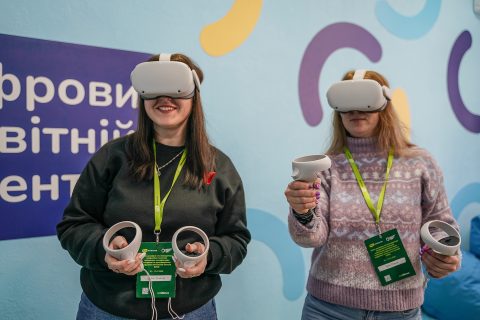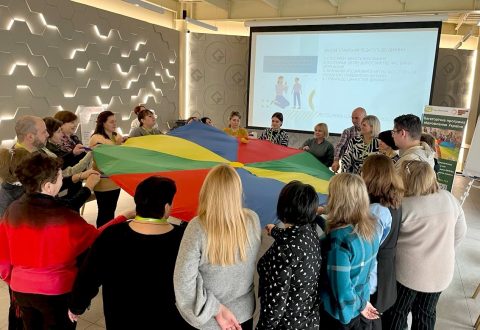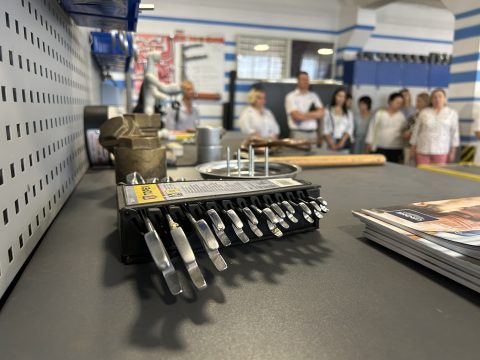Resilience in Kharkiv: How a Summer Camp for Gifted Children Offers Hope Amid War
Over 190 Ukrainian pupils from Kharkiv gathered together for a summer catch-up camp organised by Finn Church Aid in Ukraine.
This camp helped kids in grades 7-10 make up for educational losses due to remote learning because of the war. Currently, the pupils are studying remotely from home. The lyceum uses its own educational platform for communication and learning, it cannot replace offline education.
“The educational process did not stop even during the shelling, but becuase of the online education children are losing communication and socialisation, which is a big problem,” says Valerij Polyvanyi the principle of the Kharkiv Scientific Lyceum “Obdarovanist”.
To mitigate the negative impact on teenagers from online learning, the lyceum administration wanted to organise a summer camp where children could make up for gaps in their education and spend time together in real life in a safe place.
Life in Kharkiv is a lottery
Kharkiv has always been a Ukrainian center of student life and youth. Today, it is one of the cities most affected by Russian military aggression in Ukraine. Now, the city is engulfed in fire and daily shelling:
“Today, life in Kharkiv is a big ‘lottery,'” shares Valerij Polyvanyi, director of the Kharkiv Regional Scientific Lyceum for Gifted Children “Obdarovanist.”
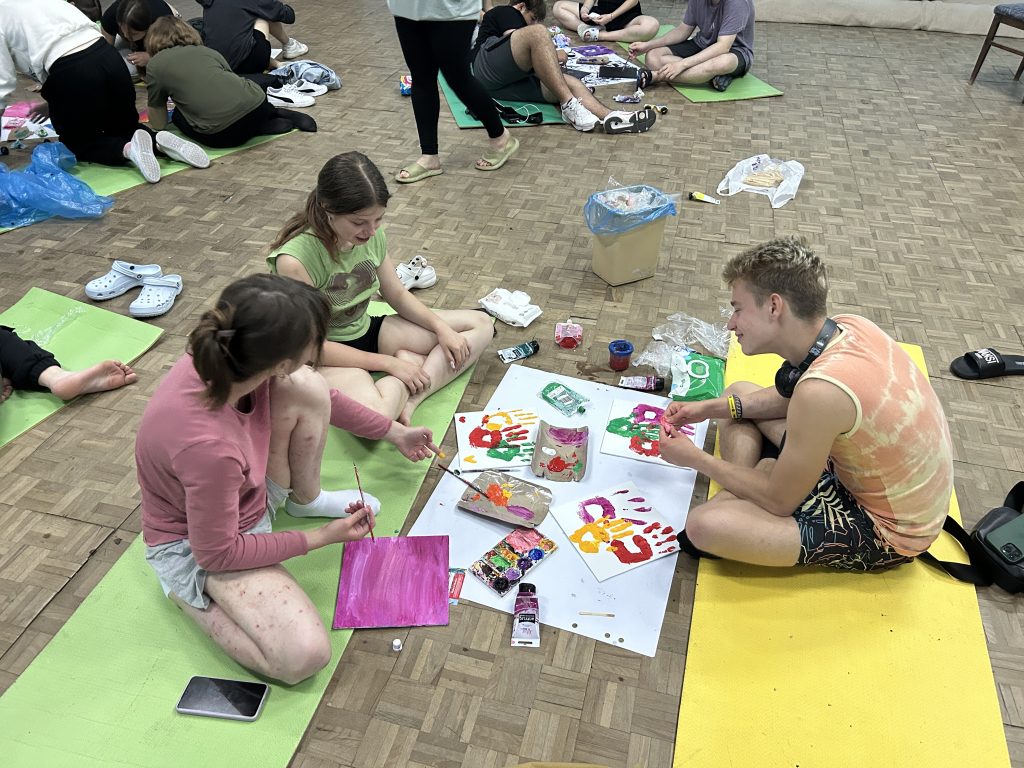
Every day, people in this region simultaneously go about their daily tasks while keeping in mind whether they will survive until the evening. Since May of this year, the city has been under constant Russian rocket attacks.
However, the people of Kharkiv never stop or give up. They continue their daily lives despite the constant danger. Over a million people, more than half of the pre-war population, still live in the city:
”If we describe life in Kharkiv, on the surface it is normal. All establishments are working. Schools, are also operating, albeit remotely. Cafes, transport, industry, business, markets – everything is working. Yet people understand that normal life is a lottery because every day some buildings are destroyed orcars are damaged. A constant tension exists, due to the expectation of danger. People here are emotionally very strained, although it is not visibly apparent,” says Valerij.
Valerij has been working in the Ukrainian education system for 25 years, six of which he has been the director of the Kharkiv Regional Scientific Lyceum “Obdarovanist.” During his tenure, he faced one of the greatest challenges of the 21st century – first adapting to COVID and then the full-scale Russian invasion of Ukraine. In addition to family, his work helps him survive these tough times:
“When there is work and something constantly occupies you, there is no strength left to think about unnecessary things. Besides the educational process, our lyceum is an educational centre for the entire community, the entire district. It also serves as a transit evacuation point,” notes Valerij.
This catch-up camp was organised by Finn Church Aid thanks to donations from the private Finnish foundation Pirkko and Tarmo Vahvelainen Foundation.
War on Pause
War forces children to grow up prematurely. During conversations with children at the camp, they were happy to distract themselves from the constant stress caused by Russian military aggression.
Over 190 children from the Kharkiv region put the war on pause. For eight days, students from the lyceum “Obdarovanist” gathered in Kamyanets-Podilskyi district, Khmelnytskyi region to spend time interacting with classmates, making various excursions to historical places in Ukraine, and gaining knowledge lost due to the remote learning.
For many children, this was their first experience of summer activities:
“This is my first time at a summer camp. I never had the chance before. Here, it’s a whole new experience because it’s my first time traveling on an overnight train, my first time at a summer camp, and my first time living with my peers and not just seeing them in class. So, these are incredible impressions, it’s cool because there’s a lot new for me here”, says Andrij Tkachov, a 17-year-old boy from Kupiansk.
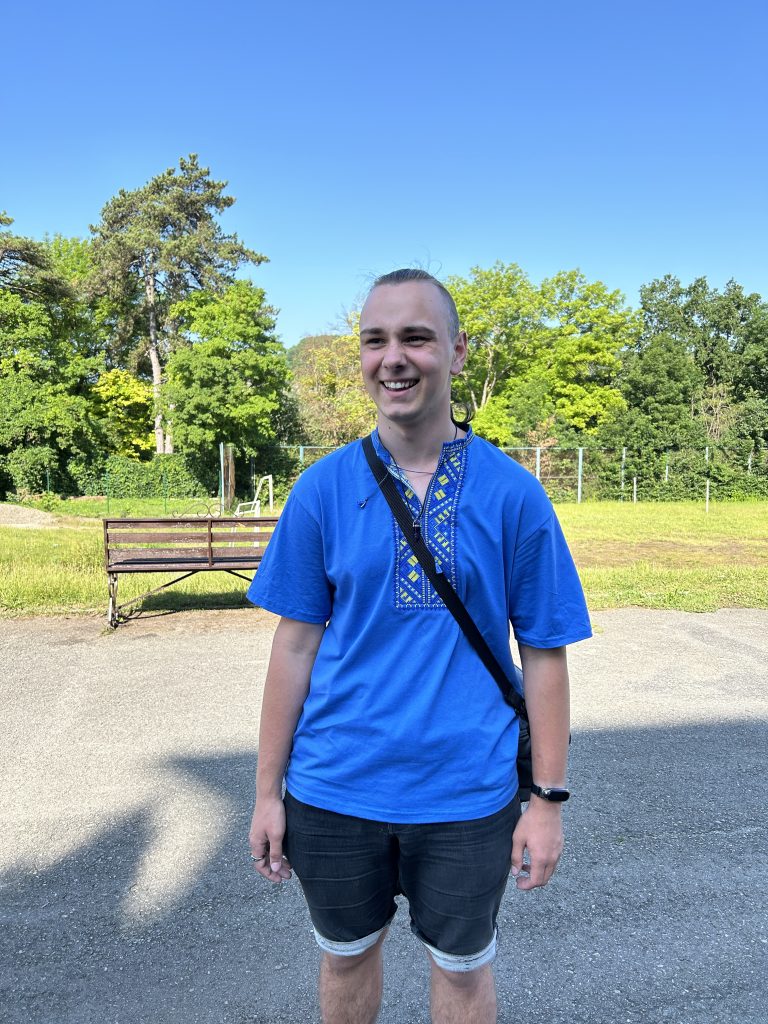
Andrii spent his entire life in his hometown, but due to the war, he had to leave and move to Kharkiv. When he and his family evacuated, the first stop for them was the “Obdarovanist” lyceum:
“My mom and I moved to Kharkiv on August 14, 2023, as internally displaced persons, due to schooling. The internet in my hometown is poor, and I wouldn’t have been able to attend classes, and education is important,” emphasises the boy.
In addition to his school being damaged by a Russian rocket, his home was also damaged:
“It was very sad because I planned to graduate from that school, I had been going there since first grade. My friends were there,” Andrij shares.
The move was also difficult for the teenager, but he was helped to cope by the new friends he found at the “Obdarovanist” lyceum. Commenting on the quality of online education, Andrij emphasizes the lack of live communication with friends and teachers.
“In online classes we connect, we have a lesson, we disconnect. We only communicate, for example, on Telegram or other social networks. There is no live communication because many people live near Kharkiv, near Kyiv. So, there is only internet connection.”
But even such virtual communication can be disrupted due to poor connectivity or power outages in the city.
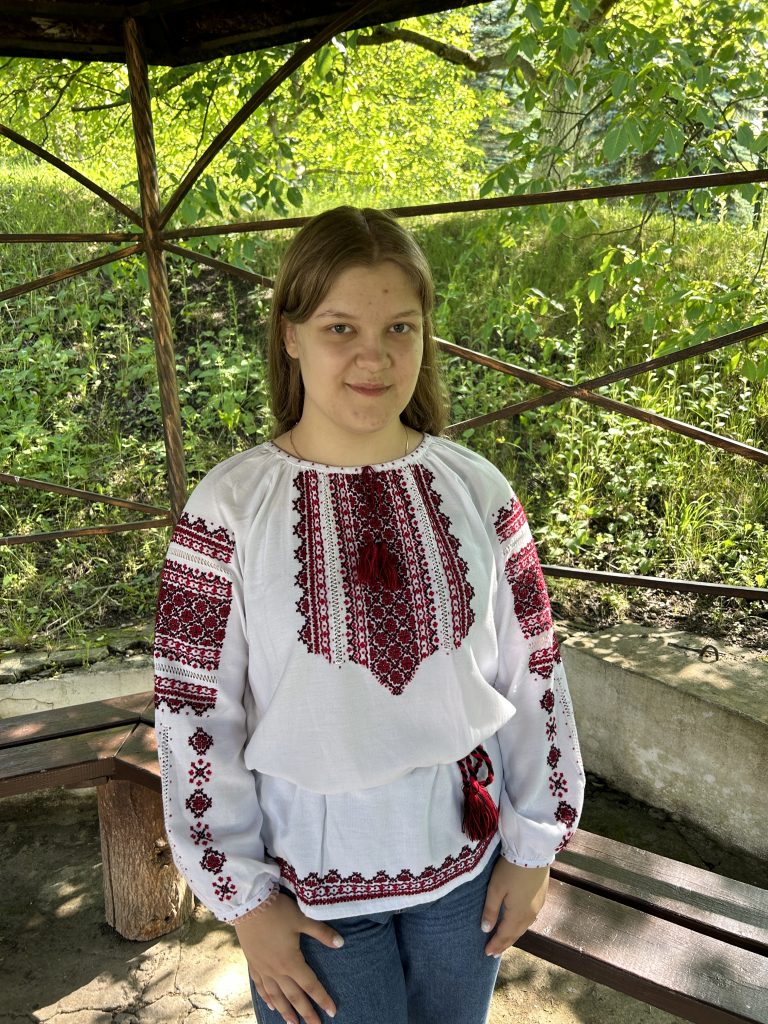
In addition to making up for educational losses, the children received psychological help from the FCA mobile teams’ psychologists. They conducted training on various topics and provided advice on how to cope with the negative impact on their psycho-emotional state.
“Yesterday, everyone was stressed about us leaving soon, and we stood there remembering the exercise from our mental health training. It really helps, and you realise that things are not as bad as you thought, and you can find positive moments in difficult times. It really helps,” says Sofia, student of ‘Obdarovanist’.
The summer camp for gifted children from the Kharkiv region was a vivid example of how combined efforts can change lives, even in wartime conditions. Children who survived the horrors of war found not only knowledge in the camp but also hope, faith in their own strength, and were able to experience childlike carefreeness.
Text and photos by: Veronika Korobko
